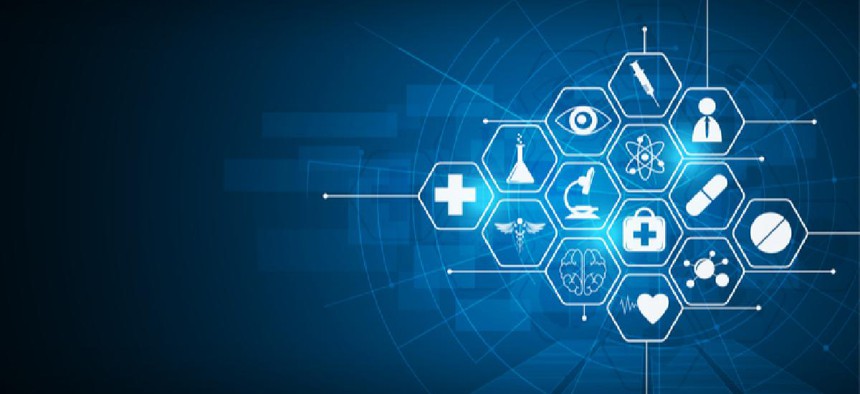CMS launches API for Medicare claims data

The Centers for Medicare and Medicaid Services is flipping the switch on a service that lets Medicare beneficiaries more easily download and share their health data.

The Centers for Medicare and Medicaid Services is flipping the switch on a service that lets Medicare beneficiaries download and share their health data.
Blue Button 2.0, an application programming interface that offers access to four years of Medicare patient data, is live. CMS Administrator Seema Verma made the announcement in a March 6 speech at the HIMSS conference in Las Vegas.
The first iteration of Blue Button allowed participating patients to download claims data as flat files -- PDFs or text. The upgrade lets Medicare beneficiaries opt-in to share their patient data across a host of vetted apps that track medical visits, drug effectiveness, fitness and more. Beneficiaries also can share their data with medical studies, potentially providing researchers with access to data on a significant share of Medicare's patient population of 53 million.
Medicare beneficiaries opt into Blue Button through their individual accounts at MyMedicare.gov.
Shannon Sartin, director of the Digital Service team at the Department of Health and Human Services, said the push to complete the Blue Button API was a case of "perfect timing." The digital service team was looking to elevate the project and generate some intra-agency attention just as Verma was conducting a listening tour across CMS looking for projects to drive innovation in the marketplace.
In October 2017, CMS opened a developer preview of the Blue Button API using synthetic data. Since then, the has been vetting developers to build integrations to use BlueButton data in health apps. Inaugural participants include Google's Verily Life Sciences, the genetic testing firm 23andMe and online pharmacy PillPack.
Part of the way the API is likely to drive commercial applications is through its use of the FHIR HL7 standard. That's short for Fast Healthcare Interoperability Resources, and it's a data standards framework that allows for the sharing of health information across proprietary systems and devices.
Medicare's adoption of FHIR "is actually a really big deal," Sartin said. "FIHR is an immature standard and adoption is the only thing that's going to advance it into maturity."
The CMS news comes on the heels of Apple's adoption of FHIR HL7 for its health application ecosystem in late January.
Niall Brennan, formerly chief data officer at CMS, agrees that the API's launch is big news for the FIHR standard.
"Medicare is often referred to as the 800-pound gorilla in health," he said. "Where Medicare goes others will follow," Brennan told FCW. "When' you've got [Apple] on the clinical side and CMS announcing on the claim sides, that's market moving and huge."
Security is a big part of the development effort. Participants must comply with a host of security requirements. As an added security layer, the API won't transmit Social Security numbers, Medicare numbers or patients' date of birth.
Still, because the Medicare population is mostly older, it's expected that many beneficiaries will designate proxies to use the Blue Button tools. But for now that delegation process will lie with beneficiaries – the API won't require any supplementary authentication for proxy users.
"Our vision here is about beneficiary empowerment," Sartin said.
Brennan points out that there are a lot of people under 65 on Medicare, and that the baby boomer population that is aging into Medicare is "significantly literate from a digital standpoint." He also sees caregivers as a big winner of the Blue Button upgrade.
"It's helping your physician understand the totality of your patient experience. The drugs you are taking, the other providers you may be seeing that a primary care doc is not aware of," Brennan said.
The siloed nature of medical records systems, even electronic systems, makes it hard for a practitioner to be sure he or she is getting a patient's entire medical history. In that context, a Medicare claims API is a "game-changer," Brennan said -- essentially a workaround to the persistent problem of electronic health records interoperability.
"The patient could be the person who breaks down the interoperability barriers," Brennan said. "If you make it an absolute requirement that patients have the right to get their own records, they can give it to whoever they want, and you've solved your interoperability problem."



